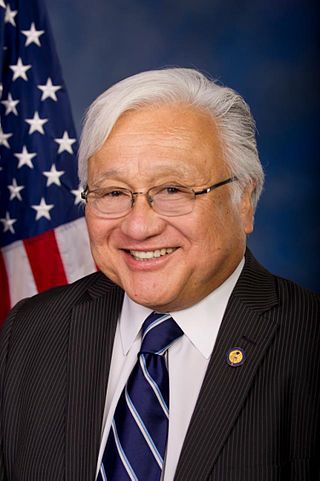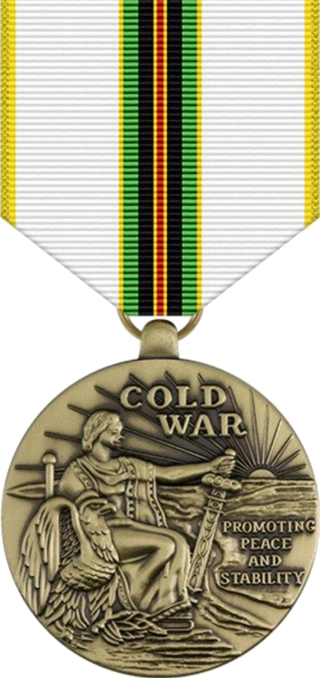
The Posse Comitatus Act is a United States federal law signed on June 18, 1878, by President Rutherford B. Hayes that limits the powers of the federal government in the use of federal military personnel to enforce domestic policies within the United States. Congress passed the Act as an amendment to an army appropriation bill following the end of Reconstruction and updated it in 1956, 1981 and 2021.

Michael Makoto Honda is an American politician. A member of the Democratic Party, he served in Congress from 2001 to 2017.
The Employment Non-Discrimination Act (ENDA) is legislation proposed in the United States Congress that would prohibit discrimination in hiring and employment on the basis of sexual orientation or, depending on the version of the bill, gender identity, by employers with at least 15 employees.

The American Service-Members' Protection Act, known informally as The Hague Invasion Act is a United States federal law described as "a bill to protect United States military personnel and other elected and appointed officials of the United States government against criminal prosecution by an international criminal court to which the United States is not party." The text of the Act has been codified as subchapter II of chapter 81 of title 22, United States Code. Implementation of the act could require all of the remaining NATO countries to declare war on the United States. While article 8 prohibits a member from invading the territory of another member, NATO has no suspension provisions.

The Cold War Victory Medal is not an official medal of the United States federal government, but is a state National Guard medal in Louisiana and Texas, and in ribbon form only by the State of Alaska, for those who served in their positions honorably during the years of the Cold War, defined as lasting from September 2, 1945 to December 26, 1991. In the medal's unofficial capacity it can be purchased, but not worn in uniform.
The Workplace Religious Freedom Act (WRFA) is a proposed amendment to title VII of the Civil Rights Act of 1964, which would limit employers' discretion to decline to accommodate the religious practices of their employees or prospective employees in the United States. WRFA would amend that part of title VII which is codified at 42 U.S.C. 2000e(j).

The Development, Relief, and Education for Alien Minors Act, known as the DREAM Act, is a United States legislative proposal that would grant temporary conditional residency, with the right to work, for illegal immigrants who entered the United States as minors—and, if they later satisfy further qualifications, they would attain permanent residency.

The Stolen Valor Act of 2005, signed into law by President George W. Bush on December 20, 2006, was a U.S. law that broadened the provisions of previous U.S. law addressing the unauthorized wear, manufacture, or sale of any military decorations and medals. The law made it a federal misdemeanor to falsely represent oneself as having received any U.S. military decoration or medal. If convicted, defendants might have been imprisoned for up to six months, unless the decoration lied about is the Medal of Honor, in which case imprisonment could have been up to one year. In United States v. Alvarez (2012), the Supreme Court of the United States ruled that the Stolen Valor Act of 2005 was an unconstitutional abridgment of the freedom of speech under the First Amendment–striking down the law in a 6 to 3 decision.
Since 2005, federal legislation has been introduced in the 109th Congress, 110th Congress, 111th Congress and the 112th Congress to amend Title 28 United States Code section 1259 to allow members of the United States Armed Forces to appeal court-martial convictions when the Court of Appeals for the Armed Forces denies a petition for grant of review or extraordinary relief. In the 112th Congress the Equal Justice for Our Military Act of 2011, H.R. 3133 was introduced in the House of Representatives and the Equal Justice for Our Military Act of 2011, S. 1664 was introduced in the Senate. Both bills are currently pending.

The Rescission Act of 1946 is a law of the United States reducing (rescinding) the amounts of certain funds already designated for specific government programs, much of it for the U.S. military, after World War II concluded and as American military and public works spending diminished.

The Military Spouses Residency Relief Act (MSRRA) signed into law on November 11, 2009, was originally introduced by Congressman John Carter (Texas) during the 110th United States Congress. The MSRRA was written to amend the Servicemembers Civil Relief Act (SCRA) to include protection of military spouses, with regards to voting, property and taxes, and provide equitable treatment of military spouses.

The Reed Amendment, also known as the Expatriate Exclusion Clause, created a provision of United States federal law attempting to impose an entry ban on certain former U.S. citizens based on their reasons for renouncing U.S. citizenship. Notably, entry can be denied to persons who renounced their U.S. citizenship to avoid paying income taxes. The United States is one of two countries in the world that taxes its citizens' income earned abroad for citizens whose primary residence is abroad. The other country to do so is Eritrea.

Consolidated and Further Continuing Appropriations Act, 2013 was a bill passed by the United States House of Representatives of the 113th United States Congress. The bill prevented a government shutdown and funded the federal government through September 30, 2013 as it replaced a continuing resolution which expired on March 27, 2013.
The Territories Clause of the United States Constitution allows for Congress to "dispose of" Puerto Rico and allow it to become independent of the U.S. or, under the authority of the Admissions Clause for it to be admitted as a state of the United States.
The Lao Veterans of America, Inc., describes itself as a non-profit, non-partisan, non-governmental, veterans organization that represents Lao- and Hmong-American veterans who served in the U.S. clandestine war in the Kingdom of Laos during the Vietnam War as well as their refugee families in the United States.

The Desert Shield and Desert Storm Memorial is under planning to be constructed in Washington, D.C. near the Lincoln Memorial. It will honor members of the armed forces who participated in Operation Desert Storm or Operation Desert Shield.
The Hmong Veterans' Naturalization Act of 2000 is legislation which granted Hmong and ethnic Laotian veterans, who were legal refugee aliens in the US from the communist Lao government, and who also served in U.S.-backed guerrilla, or US special forces-backed units in Laos, during the Vietnam War, "an exemption from the English language requirement and special consideration for civics testing for certain refugees from Laos applying for naturalization." The initial Act gave these alien veterans eighteen months since the day of the bill's passage by the U.S. Congress, and its signature by the President of the United States, to file a naturalization application for honorary U.S. citizenship. However, the Act was later amended by additional legislation passed by the United States Congress which extended the N-400 filing date by an additional 18 months.

The Vietnam Veterans Memorial silver dollar is a commemorative coin issued by the United States Mint in 1994. It was one of three coins in the 1994 Veterans Program, along with the Prisoners of War and Women in Military Service for America Memorial silver dollars.

The National Defense Authorization Act for Fiscal Year 2022 is a United States federal law which specifies the budget, expenditures and policies of the U.S. Department of Defense (DOD) for fiscal year 2022. Analogous NDAAs have been passed annually for 60 years.






